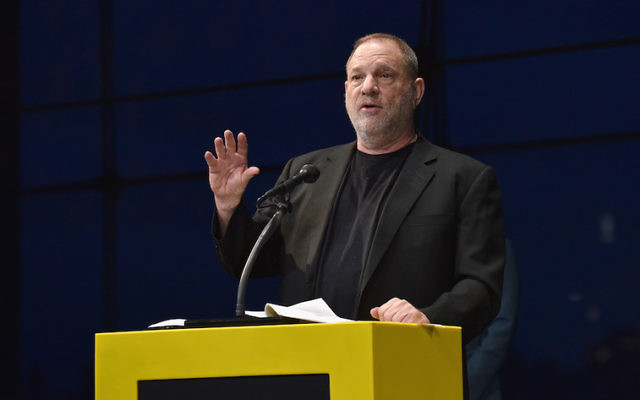The Weinstein factor – a catalyst for real change?
As details have emerged of Harvey Weinstein's alleged behaviour over the decades, one is left asking how, in this age of the ever-present smart phone, has one of Hollywood's best-kept secrets evaded the spotlight?
HARVEY Weinstein is a name that has been inescapable over the past two weeks.
The Hollywood heavyweight is at the centre of a media storm amidst a grotesque string of allegations of rape, sexual assault and harassment spanning three decades.
While it all began with a New York Times article alleging Weinstein paid off sexual harassment accusers for years, a subsequent piece in The New Yorker detailed the harrowing accounts of women who had allegedly experienced sexual assault and harassment by the co-founder of Miramax and the Weinstein Company.
Yet, as each day passes, it seems another claim comes to the fore from another actress, model, journalist or former employee.
At the time of print, 51 women have made accusations against Weinstein, among them Angelina Jolie, Ashley Judd and Gwyneth Paltrow.
Each testimony follows a familiar pattern: Weinstein showed interest in a “pretty girl”, then lured her to his hotel room with the promise of a confidential discussion about the prospects of an upcoming role, where he would then launch his assault. When resisted, he would use the threat of his status, promising the woman that if she did not comply, she would never get another role again.
And more often than not, the threat would become reality, with many women attesting serious damage to their acting careers for not falling to the Weinstein whim. Then would come the harassment, with many paid off or intimidated into silence.
It was the perfect formula: brandishing sex as a weapon of power and control, fed by shame and silence.
As details have emerged of Weinstein’s alleged behaviour over the decades, one is left asking, how? How, in this age of the ever-present smart phone, eager to tweet, snap and share, has one of Hollywood’s best-kept secrets evaded the spotlight? As director Judd Apatow asks, what about the people who were signing the cheques for all these years?
Those in the inner circle, aware of the actions, yet resigning themselves as pawns in a culture of complicity – “the enablers”. And then there are those who excused such behaviour as “old school”, the effect of the “casting couch”.
One of Weinstein’s alleged victims was journalist Lauren Sivan. “For those asking why I waited [to come forward]? YOU try telling that story 10yrs ago. Only possible now because of women with bigger names far braver than me,” she tweeted.
Does the fact that several A-listers are included among the 51 give the claims real legitimacy? Because we know their names, so now we sit up and listen?
The equalisation of sexual abuse as a norm inherent to the industry is only further fuelled by what actress Emma Thompson describes as a gross gender imbalance that exists in positions of seniority in Hollywood.
Or is Weinstein’s alleged spiral merely the old paradigm of power, the crux of every Shakespearean tragedy? Hubris, the sin of pride ultimately resulting in a downfall so inevitable and tremendous.
Weinstein has lost respect, status, his place on the board of his own company, and has been expelled by the Academy of Motion Picture Arts and Sciences.
Credited almost as much as God in Oscar acceptance speeches, he was revered as the great maker of dreams for directors and actors, delivering the artistry of stories to the screen.
He shrouded his alleged actions beneath the cloak of philanthropy, donating hundreds of thousands of dollars to the Hillary Clinton presidential campaign and the Clinton Foundation.
He was also set to pledge $5 million to the University of Southern California Film School (donations which have now either been rejected, or passed on to charity).
Many members of the media, celebrities, politicians and actors have publicly denounced and distanced themselves from Weinstein.
But when the 140 character tweet limit has been reached, and the world has moved on to the next hashtag, will there be any real change?
Is it possible to change a culture so deeply ingrained in an industry where sex will always sell?
And perhaps most poignantly, is there space for real and meaningful change, when Emma Thompson reminds us this “crisis of extreme masculinity” is also “represented by the most powerful man in the world”?
REBECCA DAVIS is a journalist at The AJN.


comments